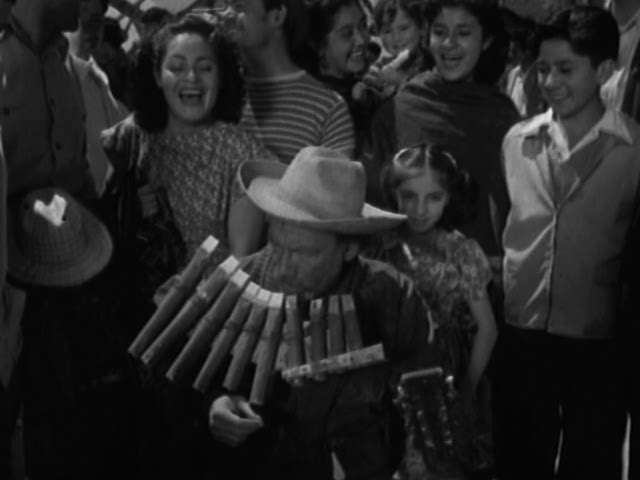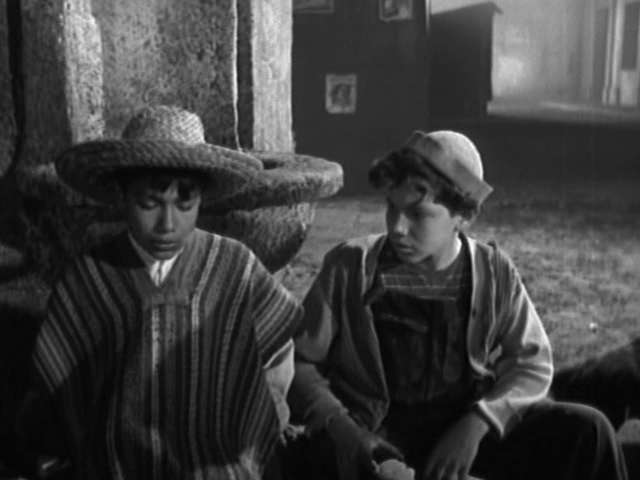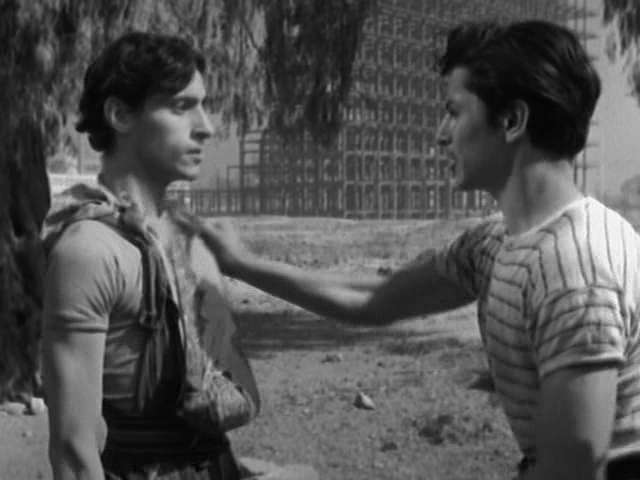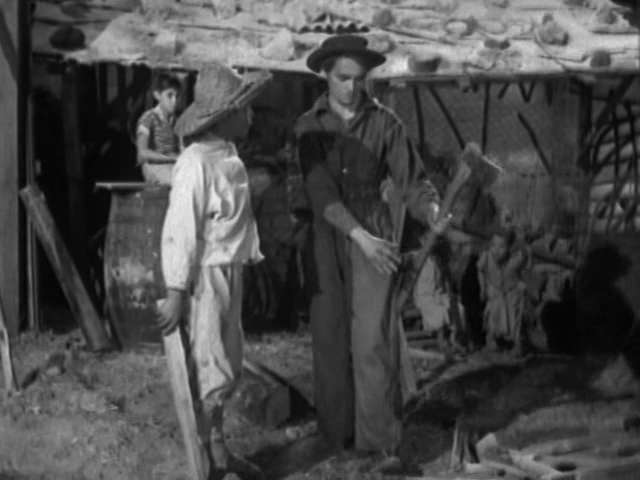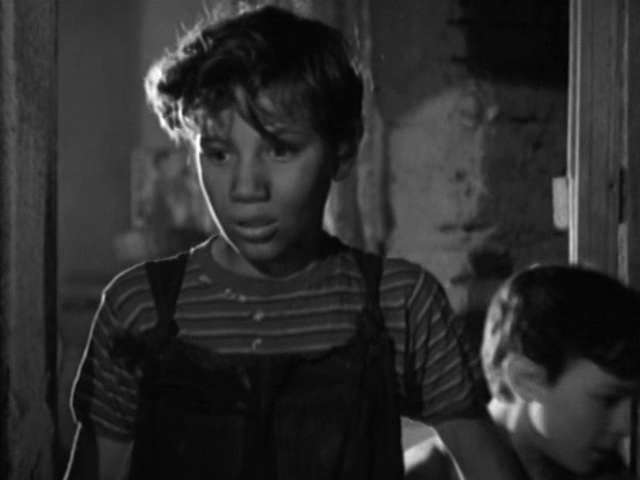![]()
![29f7c043f76a2bde437fd0d52a185152]()
Quote:
This is the story of Uxbal, a man living in this world, but able to see his death, which guides his every move.
![]()
![]()
![]()
![]()
![]()
Quote:
It’s a real testament to a filmmaker’s abilities when one of his pieces can principally revolve around a struggling man’s attempts to support his family, plus the effects he has on those around him, and then use said protagonist’s psychic abilities as little more than a subplot. Imagine if The Sixth Sense portrayed Cole as a grown man, near destitute and hammered by life, with the “I see dead people” crux as narrative depth rather than intricate focus. Mexican maestro Alejandro Gonzalez Inarritu has proved just how apt he his at capturing the vast scope of a story, whether in the sensational and emotionally hardboiled (Amores Perros) or the ambitious but ultimately underwhelming (Babel), but with his Catalan set epic Biutiful he takes a boat across the Atlantic to delve into a novel-like character study stuffed with an infusion of European sensibility and uniquely personal vision that tops the lot. Having cinematic supreme and go-to guy for villainy Javier Bardem drawing in the crowds in a superb central performance ultimately sells the film both in terms of interest and in quality.
Bardem is Uxbal, unlucky in love and life as he crosses the line of the law to provide for his children Ana and Mateo (great child acting by Hanaa Bouchib & Guillermo Estrella). Without a solid job to rely upon for income, his paltry returns instead come from assisting his fellow unfortunates, whether they be Chinese construction managers relying on illegal immigrants for work or Senegalese black marketers doubling as both business partners and family friends. The fact that he can see the dead, and converse with them at the behest of grieving relatives, doesn’t elevate his life into anything particularly special, indeed it is another facet of misery in his luckless existence. Things, naturally, can only get worse, and tragedies in work and sickening news at home force Uxbal to take drastic action as he faces up to the fact that he is now working towards a legacy for those he loves. He attempts to rebuild a more solid family life by rekindling his relationship with manic depressive ex Marambra (Maricel Alvarez), while seeking redemption and a future in his unsung efforts to look after those that fate have left worse off than himself. The only solace, as the title would suggest, is in appreciating the beauty around him hidden amongst the despair.
It sounds like utterly downbeat, depressing stuff, and for the most part this is true; make no mistake, Biutiful holds no punches in its occasionally brutal depiction of hard living in Barcelona’s dark shadows and working class fixer culture. When bad news comes, it comes in threes and devastates the beleaguered audience as much as it does the myriad cast on show. Such a summation delivered on its own may be starkly honest, but it is also grossly misleading, for Inarritu’s intensions are not to drive a viewer to suicidal sadness, but to remove the roof and shine some light on the seemingly miserable and draw from it some form of joy, hope and the inspirational possibilities that man at his best can provide. Despite its ambitious scale and scope – following the supporting characters deep into their personal lives represents a narrative detour most auteurs would be unable to sustain – the emotional bloodlines are pronounced and easily accessible, and work both ways. Yes, it hurts when Uxbal inadvertently plays a part in the death of a large group of Chinese laborers, but we can also smile with him through the quirky idiosyncrasies of his convincing bond with his young children, and silently cheer his schemes to help the wife of an imprisoned acquaintance.
This is where Bardem comes into his own, and although he is best known to Western audiences for the sublime of Anton Chigurh and the entertainment of Bond villainy, it is with his role that he displays the enthralling commitment to character and natural gift of subtle expression best exhibiting his talents. Uxbal is a hugely flawed individual, one with a moral compass that occasionally takes him into the realms of anti-hero and anti-villain, and his range of personal demons and pain cross into his decision making in a style that is both true to life and potentially alienating when seen in fiction. But there is a huge heart within him, and his actions are those of a desperate man forced to adapt to his surroundings, circumstances and luck. He rarely affords himself any kind of privilege, instead silently organizing, leading and exploiting for his own greater good. Ethically questionably actions fall to the scrutiny of necessity, and we have a sufficiently intimate look into his psyche and character that we can give him a pass, if only just. Those around him, like brother Eduard Fernandez and business partners Taisheng Chen and Jin Luo, certainly come across as far worse, and their lack of family priorities dictate more pronounced slides into the immorality of a cruel world.
While Bardem makes the protagonist both believable and overwhelmingly sympathetic, Inarritu goes about turning the canvas of Biutiful into something as extraordinary as it is grand, birthing epic story telling out of a simplistic genre. Political issues around immigration and law enforcement are handled with the confidence of a documentary veteran, subplots focusing on the lives of supporting characters bear the balance and impact of short films…and then there’s the psychic medium angle. It sums up the film’s attitude and tone that such a divisive story strand is handled with a degree of irrelevance, one that is refreshingly if bleakly honest to life’s grind; something paranormally, supernaturally special doesn’t really mean all that much in the long run.
Yes, Uxbal’s abilities are real and we learn this through his efforts to earn cash on the side at mortuaries and thanks to the appearance of a motherly figure from his past who honed his talent, but since when did such a controversial gift really define somebody’s life? It is not central because it is not central to Uxbal, what’s more important are his kids. Most films wouldn’t get away with it, but somehow this agenda elevates Biutiful even higher. The plotlines and variety of interests on show are more akin to a book, one that ordinarily would have to be condensed in the interest of adaptation, but here the full vision not only survives but thrives. It can ever afford bookends independent of the main plot that work so well despite being yet more to digest. Anyone doubting Inarritu’s own gift in light of the polarizing Babel should take note; he is something special.
A set of gritty and supreme performances from the superb supporting troupe pack the film with depth, as does an intelligent screenplay from the director plus writing partners Armando Bo and Nicolas Giacobone, while an effluent score by Gustavo Santaoletta gives it a tone and feel rarely captured in modern motion pictures; translucent emotional focus, a mood both palpable and understated, and themes that are hard hitting yet enlightening. Technically speaking, Biutiful is an utterly flawless film, gorgeously capturing Barcelona even as it depicts its back street criminal element, sublimely finding the beauty of life even in the doldrums of lower class struggle.
Essentially two very good films rolled into a single great, it is a final product that shouldn’t work, really shouldn’t work, and nine out of ten times wouldn’t. Controversial a view though it may be, here Inarritu matches the caliber of his career defining Amores Perros and tops it, delivering the Godfather of rough personal drama. Simply stunning and sensational cinema.
– Scott Patterson
http://nitroflare.com/view/0E19726DE37E537/Alejandro_Gonzalez_Inarritu_-_%282010%29_Biutiful.mkv
https://publish2.me/file/ff6c8f347cde0/Alejandro_Gonzalez_Inarritu_-_%282010%29_Biutiful.mp4
Language(s):Spanish
Subtitle(s):English


